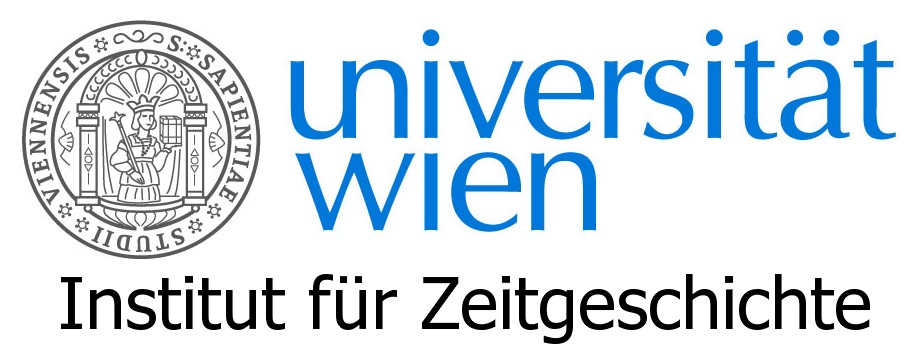VWI goes to ... / VWI invites ...
Der Kolloquienzyklus der VWI-Fellows
Die VWI-Fellows präsentieren Zwischenresultate ihrer Forschungsvorhaben im Rahmen von Kolloquien, die – im kleinen Rahmen angekündigt – auch einer akademisch und inhaltlich interessierten Öffentlichkeit zugänglich sind. Die Vorträge werden durch eine im jeweiligen Thema ausgewiesene Fachperson in Form einer Respondenz oder eines Kommentars begleitet und von den anderen Fellows und dem Publikum diskutiert.
Das Veranstaltungsformat VWI goes to … war ursprünglich aus akutem Raummangel geboren worden, konnte doch das Institut an seinem früheren Standort, am Desider-Friedmann-Platz nicht einmal eine kleine Veranstaltung organisieren. Allein aus dem Kontakt zu anderen akademischen Einrichtungen in Wien, zum Teil auch in der weiteren Region, ergab sich in der Folge – auch dank der jeweils eingeladenen Kommentatorinnen und Kommentatoren – wiederum die einzigartige Möglichkeit, die Fellows und die Forschungen des VWI mit anderen Institutionen, methodischen Ansätzen, Forschungsfragen und Ideen zu vernetzen, das Institut in den regionalen Forschungsraum noch mehr zu integrieren. Aus diesem Grund wurde entschieden, das Format auch am neuen Standort beizubehalten. Gleichzeitig eröffnete sich aber am Rabensteig auch die Gelegenheit, zu diesen Kolloquien Institutionen auch an das VWI einzuladen. Aus diesem Grund trägt ab Herbst 2016 das VWI-Kolloquium entsprechend alternierend auch die Bezeichnung VWI invites... .
| VWI invites/goes to... | |||
| Lindsay MacNeill: Policing Politics in Austria 1918-1955: The Case of Heinrich B. | |||
Mittwoch, 11. Mai 2016, 16:00 - 17:30 Institut für Zeitgeschichte der Universität Wien, Seminarraum 2, Spitalgasse 2–4, Hof 1, 1090 Wien
|
|||
VWI goes to the University of Vienna Across Europe the police played a prominent role in the Nazi system and the Holocaust. To help explain this, historians often point to interwar police forces as institutions filled with men who later collaborated with the Nazi police state because of their personal belief systems. This is particularly the case for Austria, where the pre-Anschluss activities of the Austrian Nazi Party add weight to these assertions. Furthermore, much of the existing scholarship that examines the role of Austrians in the Nazi police state has focused on men like Adolf Eichmann, Ernst Kaltenbrunner, Odilo Globocnik, and Franz Stangl, solidifying our image of a thoroughly Nazified Austrian police force. However, these men, with the exception of Stangl, who served as a low-level officer in the 1930s, had no pre-Anschluss affiliation with the Austrian police. Therefore, their activities ultimately reveal very little about the relationship between the Austrian police and the Nazi system.
As a young man in the 1920s, Heinrich B. began his policing career in the internationally respected Austrian police force headed by Police President Johann Schober. Under the Dollfuss and Schuschnigg regimes in the 1930s, Heinrich B. dealt with anti-subversive activities and cooperated closely with American efforts to police communism. These experiences ultimately facilitated his transfer first to the Viennese Gestapostelle and later to Prague's. After the war, he was tried for his participation in the Nazi state. This paper will use Heinrich B's career trajectory to discuss the course of Austrian policing from 1918 to 1955 and help to illuminate our understanding of the Austrian police. Commented by Florian Wenninger Lindsay MacNeill is a Junior Fellow at the Vienna Wiesenthal Institute for Holocaust Studies. She is a PhD candidate in history at American University, where she received her MA. She has a BA from the University of North Carolina and works as a researcher at the US Holocaust Memorial Museum. Florian Wenninger is a Postdoc at the Institute for Contemporary History, Vienna University. Yet, he focused on the political history of interwar Austria and its impact on political identity after 1945. His habilitation project aims to compare mutual perceptions of police forces and societies in Central Europe and the US throughout the twentieth century. |
|||






 This paper expands our scope to better reflect the nature of Austrian policing, looking not just at the Nazi era but taking the long view from 1918 to 1955. Using the case of Heinrich B., this paper challenges the view that the Austrian police should be understood only as a collection of secret Nazis who collaborated with the Nazi police state because of ideological affinity. I argue that attitudes and practices embedded in the organizational culture of the Austrian police before 1938 contributed to its incorporation into the Nazi police state.
This paper expands our scope to better reflect the nature of Austrian policing, looking not just at the Nazi era but taking the long view from 1918 to 1955. Using the case of Heinrich B., this paper challenges the view that the Austrian police should be understood only as a collection of secret Nazis who collaborated with the Nazi police state because of ideological affinity. I argue that attitudes and practices embedded in the organizational culture of the Austrian police before 1938 contributed to its incorporation into the Nazi police state.